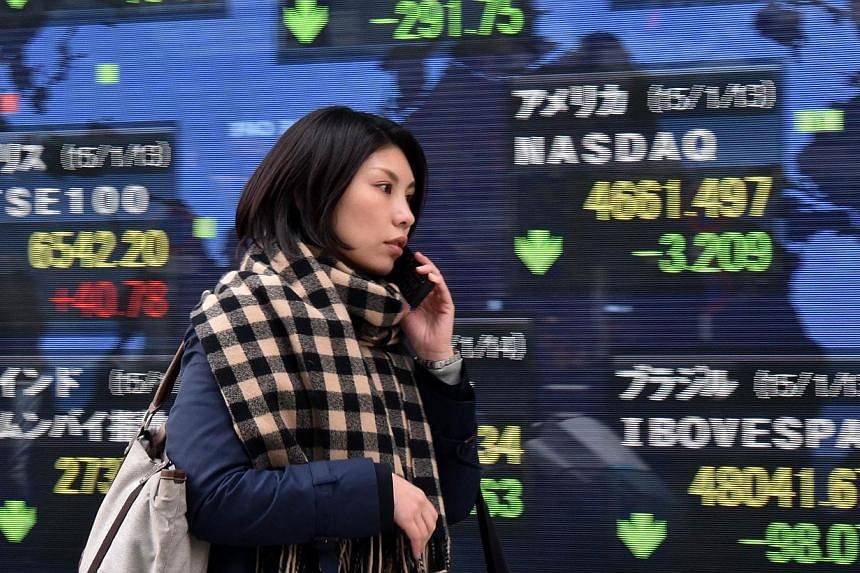SINGAPORE (Bloomberg) - Asian stocks declined, with Japanese exporters sliding as the yen strengthened after the Reserve Bank of Australia (RBA) cut interest rates to a record low. China shares rose for the first time in six days on stimulus speculation and Australian stocks gained ground after the central bank's surprise move.
Honda Motor Co, a carmaker that gets about 84 per cent of sales outside of Japan, slipped 2.9 per cent in Tokyo. Singapore Airlines dropped 3 per cent as regional carriers declined as oil futures extended their rally. The Industrial & Commercial Bank of China, the nation's biggest lender, climbed 1.5 per cent in Hong Kong.
The MSCI Asia Pacific Index lost 0.4 per cent to 139.81 as of 4.02pm in Hong Kong, erasing gains of 0.2 per cent as it headed for its lowest close since Jan 22.
The RBA joined a global wave of monetary easing, citing lower commodity prices and an overvalued local currency pressuring Australia's economy as justification for reducing borrowing costs.
The central bank move "lifted the yen and is putting a damper on stock markets," said Mr Tomoichiro Kubota, a senior market analyst at Matsui Securities Co. in Tokyo.
Japan's Topix index declined 1.2 per cent as the yen strengthened 0.3 per cent, South Korea's Kospi index fell less than 0.1 per cent, Singapore's Straits Times Index lost 0.5 per cent and the Philippine Stock Exchange Index slid 0.2 per cent.
Australia's S&P/ASX 200 Index gained 1.5 per cent to close at its highest since May 2008. The RBA cut the overnight cash rate target by 25 basis points to 2.25 per cent. The decision was predicted by just seven of 29 economists surveyed by Bloomberg News, with the rest expecting no change. New Zealand's NZX 50 Index added 0.4 per cent.
China's Shanghai Composite Index climbed 2.5 per cent. Prospects for monetary easing are growing after data signaled a manufacturing contraction in January, according to Dragon Life Insurance Co.
The People's Bank of China injected 90 billion yuan (US$14.4 billion) into the money markets to avoid a cash crunch amid new share offerings and ahead of the Chinese New Year holidays. Hong Kong's Hang Seng Index gained 0.3 per cent.
"There's speculation about a reserve-requirement ratio cut," said Shangahi-based Dragon Life fund manager Wu Kan. "Though it's not confirmed, the speculation is driving the market to some extent." Futures on the Standard & Poor's 500 Index slid 0.1 percent today. The US equity benchmark index climbed 1.3 per cent yesterday as energy shares rallied after crude rebounded from an almost six-year low reached last week. West Texas Intermediate crude futures gained as much as 1.8 per cent today to rise a fourth day, the longest winning streak since August, as strikes continued at US refineries.
The Institute for Supply Management's US manufacturing index declined to a one-year low of 53.5 from December's 55.1, according to data from the Tempe, Arizona-based group on Monday. Readings greater than 50 signal growth. Another report showed consumer spending fell in December after surging over the previous two months.

